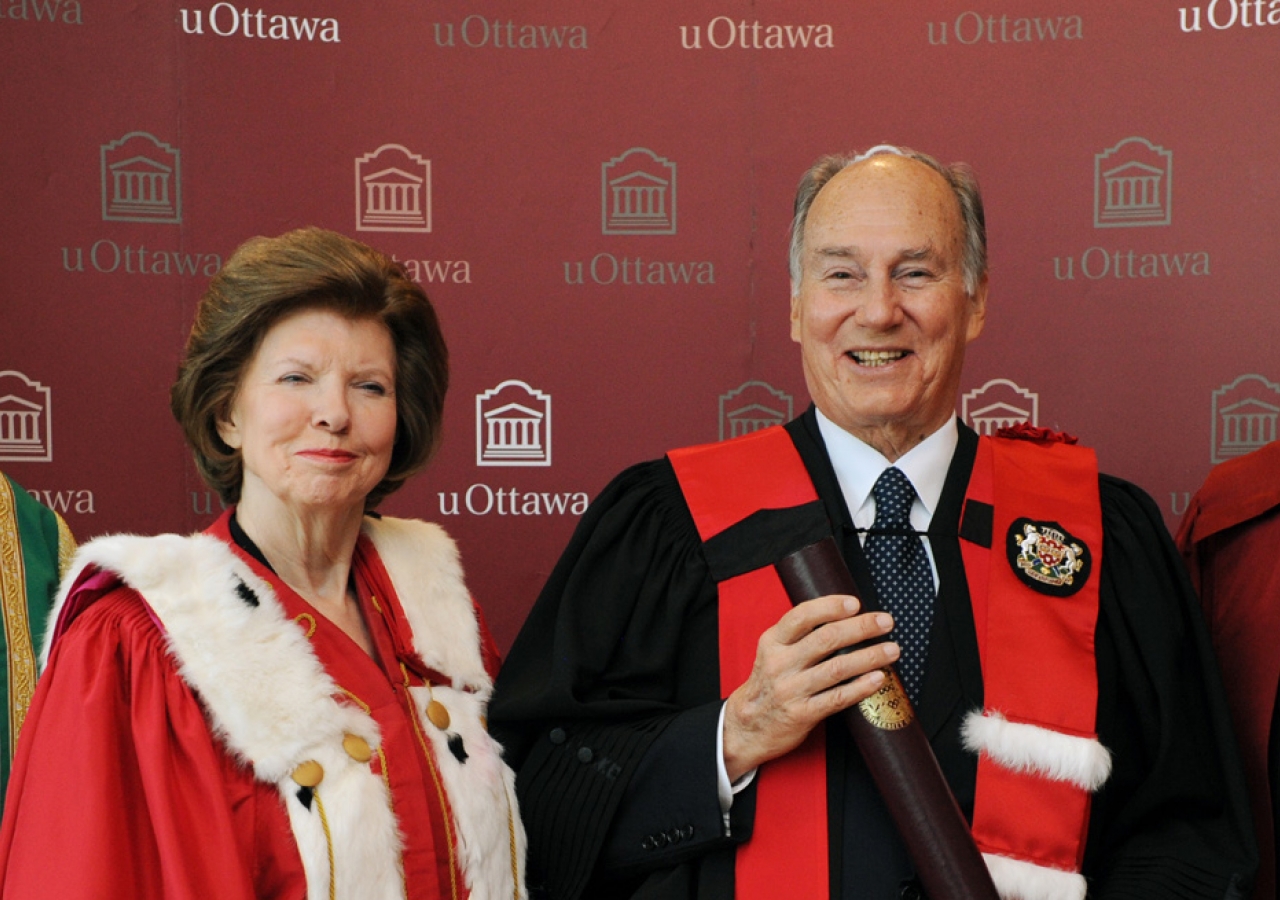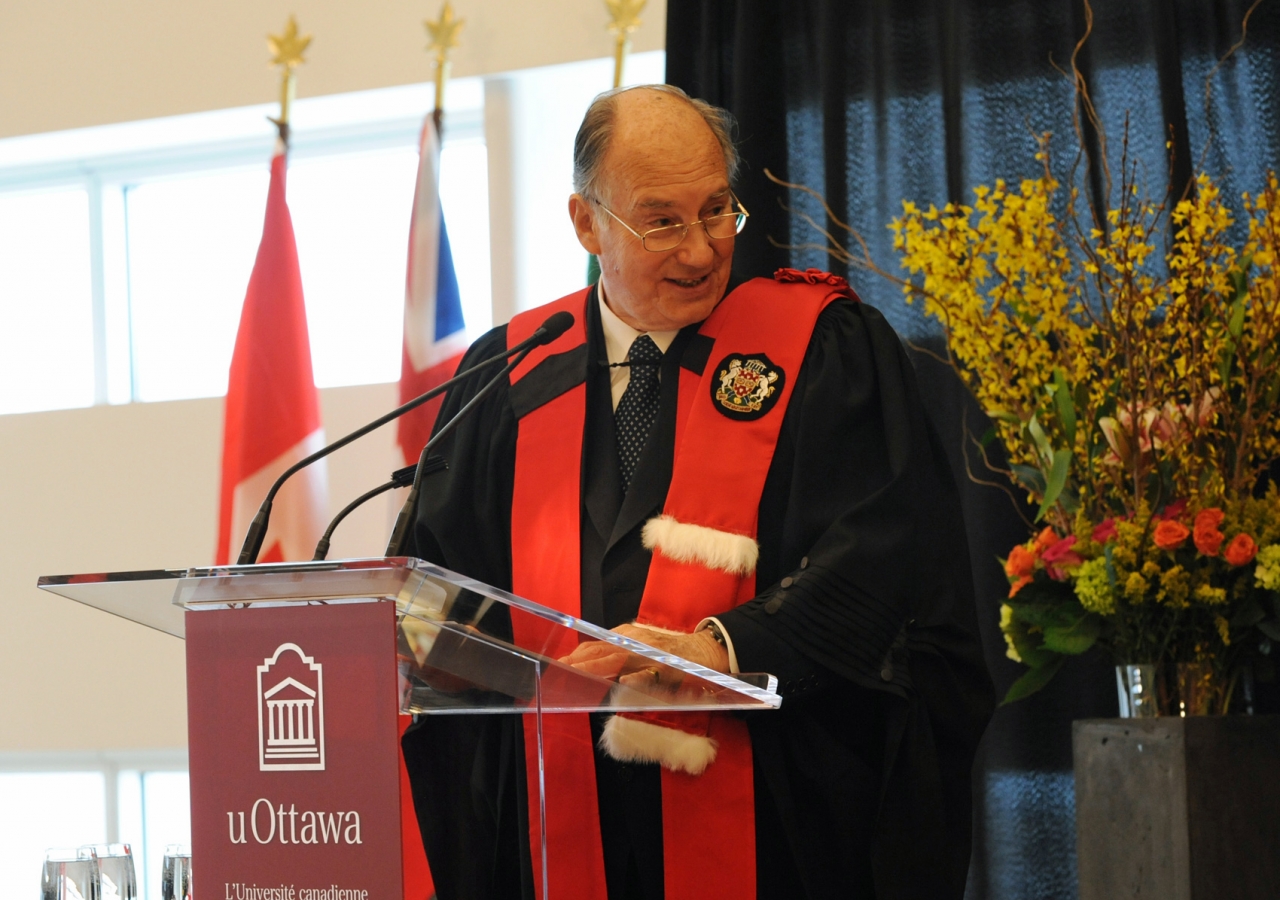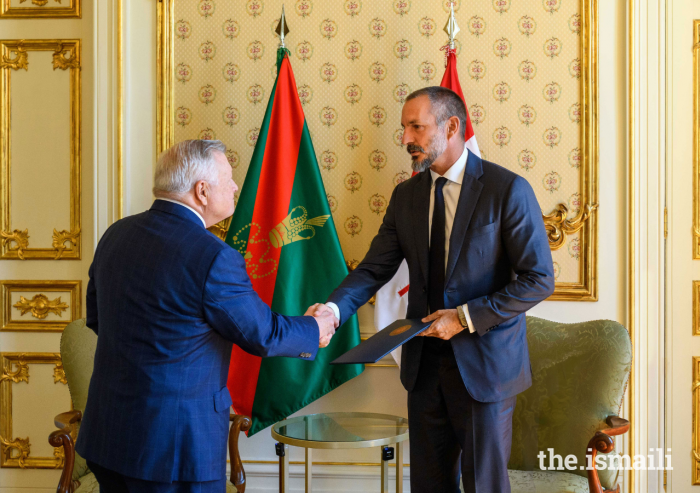In his welcome remarks, Allan Rock, President of the University of Ottawa, addressed Mawlana Hazar Imam, saying “we see Your Highness' presence today as a call to action for all in our university community who seek to serve humanity.” President Rock described Hazar Imam as a builder of bridges who has used “his own faith as a point of departure [to speak] directly to the goodness in all peoples.”
The convocation was presided over by University of Ottawa Chancellor Huguette Labelle, in what was her last official event following an 18-year tenure as Chancellor.
“Today's honorary doctorate recipient is a man who inspires his followers and commands the respect of heads of state everywhere,” said Chancellor Labelle as she prepared to confer the honorary degree upon Mawlana Hazar Imam. “His work has bettered the lives of people and communities around the world.”
Speaking before members of the University Senate and Faculty, leaders from various levels of government, and members of the diplomatic corps, Mawlana Hazar Imam thanked the Chancellor, the President and the University of Ottawa for the honour. He also expressed gratitude for the support that the Aga Khan Development Network receives from members of the University, the people of Ottawa and from Canadians. Speaking in French, Hazar Imam cited the Global Centre of Pluralism – a partnership project between the Ismaili Imamat and the Government of Canada – as an example of the spirit of cooperation that exists between Canadian institutions and the Ismaili Imamat in the face of challenging global issues.
Turning his attention to the field of governance and public policy, Mawlana Hazar Imam recalled that “the University of Ottawa has a long tradition of sharing internationally in the hard work of intellectual inquiry.” He added that “Canada's Governor General recently referred to this process as ‘the Diplomacy of Knowledge.' And it seems to me that questions of constitutional governance in the developing world deserve a particularly high place on that agenda.”
Touching on the history of constitutions and pointing out advantages and disadvantages of governance models being attempted in different parts of the developing world, Hazar Imam said “what is critical is that constitutional arrangements should respect inherited traditions, ensure fairness to minority communities, respond to rural as well as urban concerns, and underwrite equitable opportunity for a better life.”
The Imam added: “We must not naively assume that what has worked in some parts of the western world, for example, will also work the same way in less developed contexts. Different places, different histories require quite different approaches.”
Mawlana Hazar Imam also spoke about the planned Graduate School of Government, Public Policy and Civil Society at the Aga Khan University. He cited this as an area where the University of Ottawa was well situated to make a contribution, with its focus on “international intellectual engagement”, “fostering democracy”, and the establishment of its new “Centre for Governance and Public Policy Research”. The University's effectiveness, said Hazar Imam, is reinforced by Canada's high standing on the international stage.
“A country's standing in our contemporary world is no longer recognised by what it can achieve for itself, but by what it can do for others,” concluded Mawlana Hazar Imam. “In this context, Canada has truly become a great world power.”









